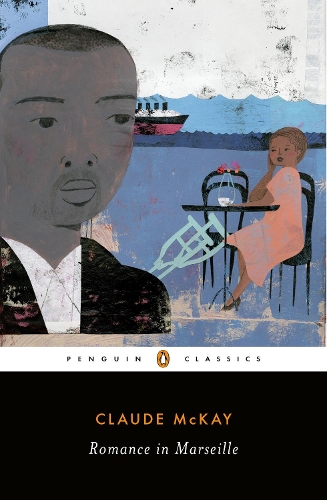
Romance in Marseille
(Paperback)
Publishing Details
Romance in Marseille
By (Author) Claude McKay
Penguin Books Ltd
Penguin Classics
11th February 2020
7th May 2020
United Kingdom
Classifications
General
Fiction
Narrative theme: politics / economics
813.52
Physical Properties
Paperback
208
Width 128mm, Height 197mm, Spine 15mm
178g
Description
The pioneering novel of physical disability, transatlantic travel, and black international politics. A vital document of black modernism and one of the earliest overtly queer fictions in the African American tradition. Published for the first time. A Penguin Classic A New York Times Book Review Editors' Choice/Staff Pick Vulture's Ten Best Books of 2020 pick Buried in the archive for almost ninety years, Claude McKay's Romance in Marseille traces the adventures of a rowdy troupe of dockworkers, prostitutes, and political organizers--collectively straight and queer, disabled and able-bodied, African, European, Caribbean, and American. Set largely in the culture-blending Vieux Port of Marseille at the height of the Jazz Age, the novel takes flight along with Lafala, an acutely disabled but abruptly wealthy West African sailor. While stowing away on a transatlantic freighter, Lafala is discovered and locked in a frigid closet. Badly frostbitten by the time the boat docks, the once-nimble dancer loses both of his lower legs, emerging from life-saving surgery as what he terms "an amputated man." Thanks to an improbably successful lawsuit against the shipping line, however, Lafala scores big in the litigious United States. Feeling flush after his legal payout, Lafala doubles back to Marseille and resumes his trans-African affair with Aslima, a Moroccan courtesan. With its scenes of black bodies fighting for pleasure and liberty even when stolen, shipped, and sold for parts, McKay's novel explores the heritage of slavery amid an unforgiving modern economy. This first-ever edition of Romance in Marseille includes an introduction by McKay scholars Gary Edward Holcomb and William J. Maxwell that places the novel within both the "stowaway era" of black cultural politics and McKay's challenging career as a star and skeptic of the Harlem Renaissance.
Reviews
Claude McKay's poetry was one of the great forces in bringing about what is often called the 'Negro Literary Renaissance' -- James Weldon Johnson
I loved Claude McKay's Romance in Marseille, so witty and so precise, a little instrument for imagining another kind of modernist history -- Adam Thirlwell * The White Review *
Author Bio
Claude McKay was born in Jamaica, and moved to the U.S. in 1912 to study at the Tuskgee Institute. In 1928, he published his most famous novel, Home to Harlem, which won the Harmon Gold Award for Literature. He also published two other novels, Banjo and Banana Bottom, as well as a collection of short stories, Gingertown, two autobiographical books, A Long Way from Home and My Green Hills of Jamaica and a work of non-fiction, Harlem- Negro Metropolis. His Selected Poems was published posthumously, and in 1977 he was named the national poet of Jamaica.
